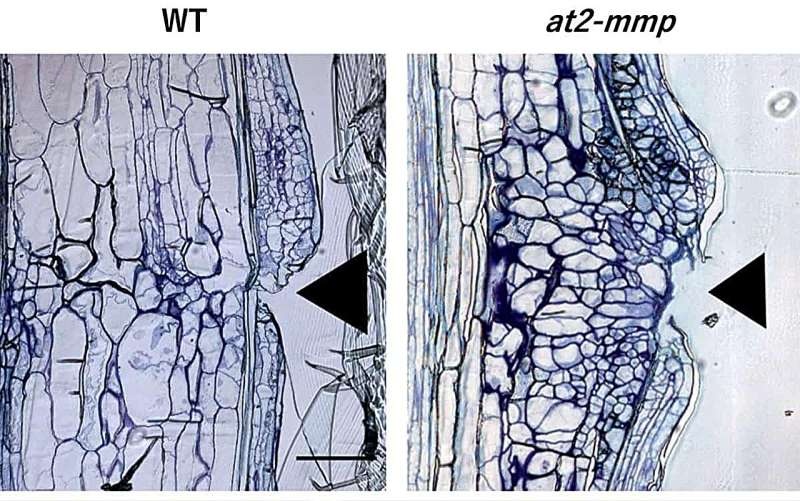Discover how a specific protease enzyme, At2-MMP, plays a crucial role in regulating cell proliferation during the self-healing process in plants, a finding that could have significant implications for horticulture and agriculture.

The Secrets of Plant Self-Healing
When a plant’s stem is injured, the surrounding cells spring into action, proliferating to repair the damaged tissue and restore function. This remarkable self-healing ability is the foundation of various grafting techniques used to propagate fruit and vegetable plants.
Previous research on this process has mainly focused on the initiation of cell proliferation, the first step in the self-healing process. However, few studies have explored the mechanisms that act as a ‘brake’ on this proliferation, ensuring the repair is properly regulated. In a new study, researchers have uncovered a surprising player in this inhibitory process: a proteolytic enzyme called At2-MMP.
The Surprising Role of At2-MMP
By studying Arabidopsis, a model plant species, the researchers demonstrated that At2-MMP is essential for inhibiting cell proliferation during the repair of severed flowering stems. When they compared tissue repair in Arabidopsis mutants lacking the At2-MMP gene (mutant at2-mmp) with wild-type plants, they made a remarkable discovery.
In the wild-type Arabidopsis plants, cell proliferation begins in the pith cells (the center of the root and stem) around three days after the stem is cut. Interestingly, the At2-MMP transcripts gradually increase from day 0 to day 5 and then decrease by day 7, coinciding with the completion of tissue repair.
However, the at2-mmp mutants exhibited abnormal cell division at the injury site. Conversely, when At2-MMP was overexpressed, the plants displayed normal wound healing similar to that of the wild-type plants. These findings suggest that At2-MMP plays a crucial role in suppressing cell division at the cleavage site, preventing abnormal cell proliferation and ensuring the repair process is properly regulated.
Conclusion
The discovery that the At2-MMP protease enzyme is essential for regulating cell proliferation during plant self-healing provides valuable insights into the intricate mechanisms plants have developed to enhance their survival and resilience. This knowledge could have far-reaching implications for the field of horticulture and agriculture, potentially leading to the development of more efficient and sustainable techniques for plant propagation and cultivation.
